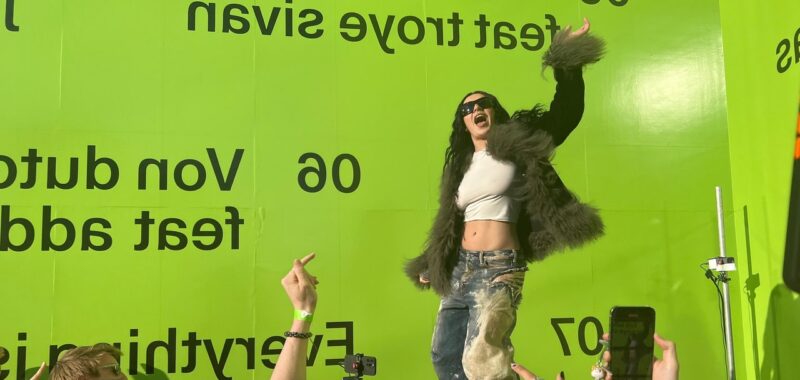But if there is a green queen, it’s “brat green,” the green that adorns the cover of Charli XCX’s wildly-acclaimed sixth album and its the-same-but-different remix companion. In an interview with Billboard she said she thought the shade was “actually quite disgusting” and wanted it to be “unfriendly and uncool.” Somehow that “disgusting” shade—Pantone 3507C—became ubiquitous and stylish. Sure, you have to get on its wavelength, but it’s not all that gross when you really spend time with it. With a dose of it opposite something monochrome it can even be sexy.
That’s the thing about green, and perhaps the defining characteristic of all the green that we’ve been confronted with this year, while we’re being told it’s gross and ugly, it’s actually alluring. Take for instance the year’s other major moment of green representation this year: Wicked.
WICKED, Cynthia Erivo, 2024. © Universal Pictures / Courtesy Everett Collection©Universal/Courtesy Everett Collection
In Jon Chu’s adaptation of the long-running Broadway musical, it’s clear we’re supposed to think that Elphaba’s green skin is horrifying. All her fellow Shiz University students make revolted faces when they first see her. In the big “Defying Gravity” finale, the evil Madame Morrible uses the green to confirm that it’s an “outward manifestorium”—people in Oz talk like this—of her villainous nature. But obviously we the audience know that Elphaba’s green skin is pretty fabulous.
Cynthia Erivo has spoken about how carefully she worked with the film’s makeup artist to pick the exact right shade of green, using a highlighter yellow to make sure her own skin tone was coming through underneath. The effect is a green that feels somehow both natural and fantastical at the same time. It’s appropriately shocking at first, but also beautiful.


.jpg)